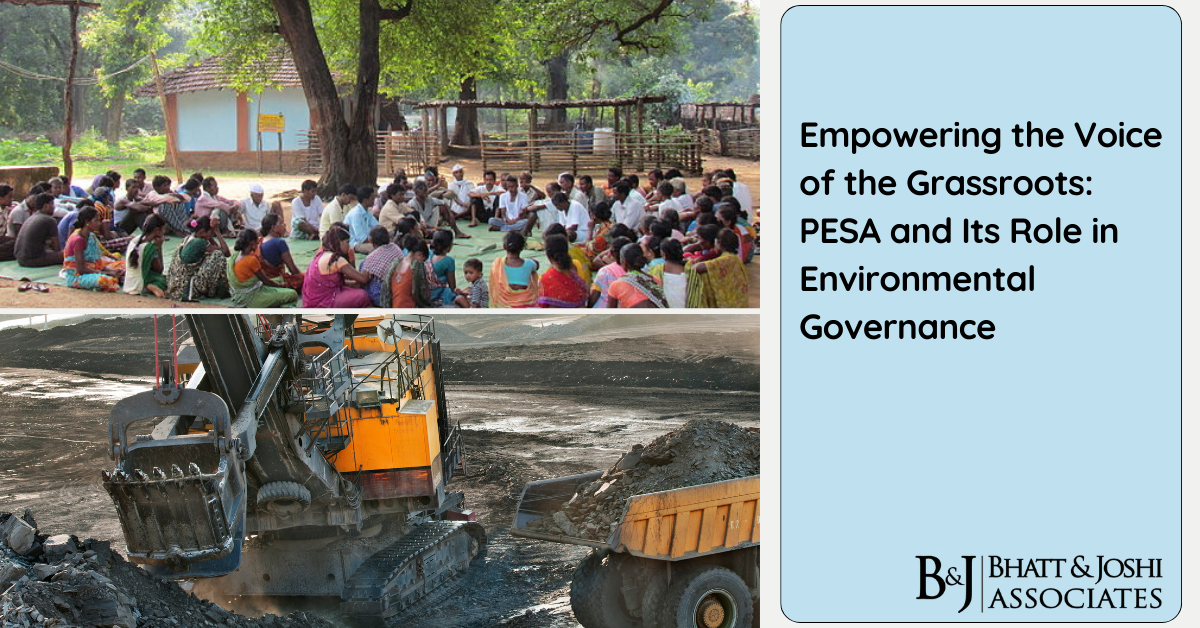Background
The judgment in Orissa Mining Corporation Ltd vs Ministry Of Environment & Forest & Ors. serves as a pivotal moment, thrusting the Panchayats (Extension to Scheduled Areas) Act, 1996 (PESA), into the spotlight and emphasizing its crucial role in amplifying the voices of indigenous communities in environmental governance. In this comprehensive exploration, we delve into the essence of PESA, its implications for local self-governance in Scheduled Areas, and its significance in the landmark judgment that redefined the contours of forest conservation and development dialogue in India.
PESA: A Framework for Decentralized Governance
Enacted in 1996, PESA was a legislative response to extend the provisions of the Panchayats to the Fifth Schedule areas, granting Scheduled Tribes and other traditional forest dwellers unprecedented powers in the management of natural resources and decision-making processes concerning their lands. The key features of PESA include the devolution of decision-making powers to Gram Sabhas for the management of natural resources and the mandatory consultation with Gram Sabhas for land acquisition and resettlement projects.
Devolution of Decision-Making Powers under PESA
PESA sought to address the historical marginalization of tribal communities by empowering Gram Sabhas with the authority to make decisions on various matters, including the management of natural resources. This decentralization aimed to ensure that local communities had a direct say in issues that directly impacted their lives and lands.
Consultation and Consent
The act mandates that Gram Sabhas must be consulted on matters of land acquisition and resettlement, reinforcing the importance of community participation in decisions that could potentially displace or disrupt the lives of indigenous populations.
The Interplay of PESA and Environmental Conservation
PESA not only addresses issues of governance but also emphasizes the importance of integrating indigenous knowledge and practices in environmental conservation efforts. It recognizes the symbiotic relationship between tribal communities and their ancestral lands, underscoring the need for sustainable resource management.
Community Rights Over Natural Resources
PESA grants communities the right to use and manage minor forest produce, securing their livelihoods and acknowledging the traditional wisdom of tribal communities in sustainable resource management. This recognition is a departure from conventional top-down approaches, acknowledging the inherent knowledge and practices of indigenous communities.
PESA’s Influence on the Orissa Mining Judgment
In the Orissa Mining case, the Supreme Court brought PESA to the forefront, highlighting its mandate for involving Gram Sabhas in decisions affecting their lands and livelihoods. The judgment set a precedent for how development projects are evaluated in Scheduled Areas, emphasizing the integral role of local governance structures in shaping the trajectory of such projects.
Ensuring Grassroots Participation
The Supreme Court reinforced the necessity of obtaining consent from Gram Sabhas, recognizing their authority over their lands. The judgment underscored the act’s role in safeguarding the rights and interests of indigenous communities against disruptive developmental projects, aligning with the principles of inclusive and participatory governance.
Broader Implications for Sustainable Development
The acknowledgment of PESA in the judgment goes beyond the immediate case, serving as a beacon for sustainable development practices that are inclusive, equitable, and environmentally sound. It champions the cause of grassroots-level governance in shaping development trajectories that are harmonious with nature and culture.
A Blueprint for Inclusive Development
The ruling provides a blueprint for future development projects, emphasizing the imperative of engaging local communities in the planning and implementation phases. It advocates for a shift towards community-led development that respects the aspirations and welfare of indigenous populations, ensuring that development is not a force of disruption but a catalyst for positive change.
Conclusion: Embracing PESA for Collaborative Development
The Orissa Mining Corporation Ltd vs Ministry Of Environment & Forest & Ors. judgment underscores the transformative potential of PESA in empowering indigenous communities and fostering a model of development that respects both ecological balance and human rights. By affirming the critical role of Gram Sabhas in environmental governance, the judgment sets a robust framework for ensuring that development projects in Scheduled Areas are pursued with the consent and participation of those whose lives are intricately linked with the land. As India strides towards achieving its development goals, the principles upheld in this case serve as a poignant reminder of the imperative to build a future that is inclusive, sustainable, and respectful of the diverse tapestry of its cultural and natural heritage. The collaborative path to development, as illuminated by the integration of PESA into the legal discourse, holds the promise of not only safeguarding the rights of indigenous communities but also nurturing a holistic and harmonious approach to progress. In embracing the tenets of PESA, India has the opportunity to forge a new paradigm where environmental governance is synonymous with community empowerment and sustainable development becomes a shared endeavor towards a more equitable and resilient future.














